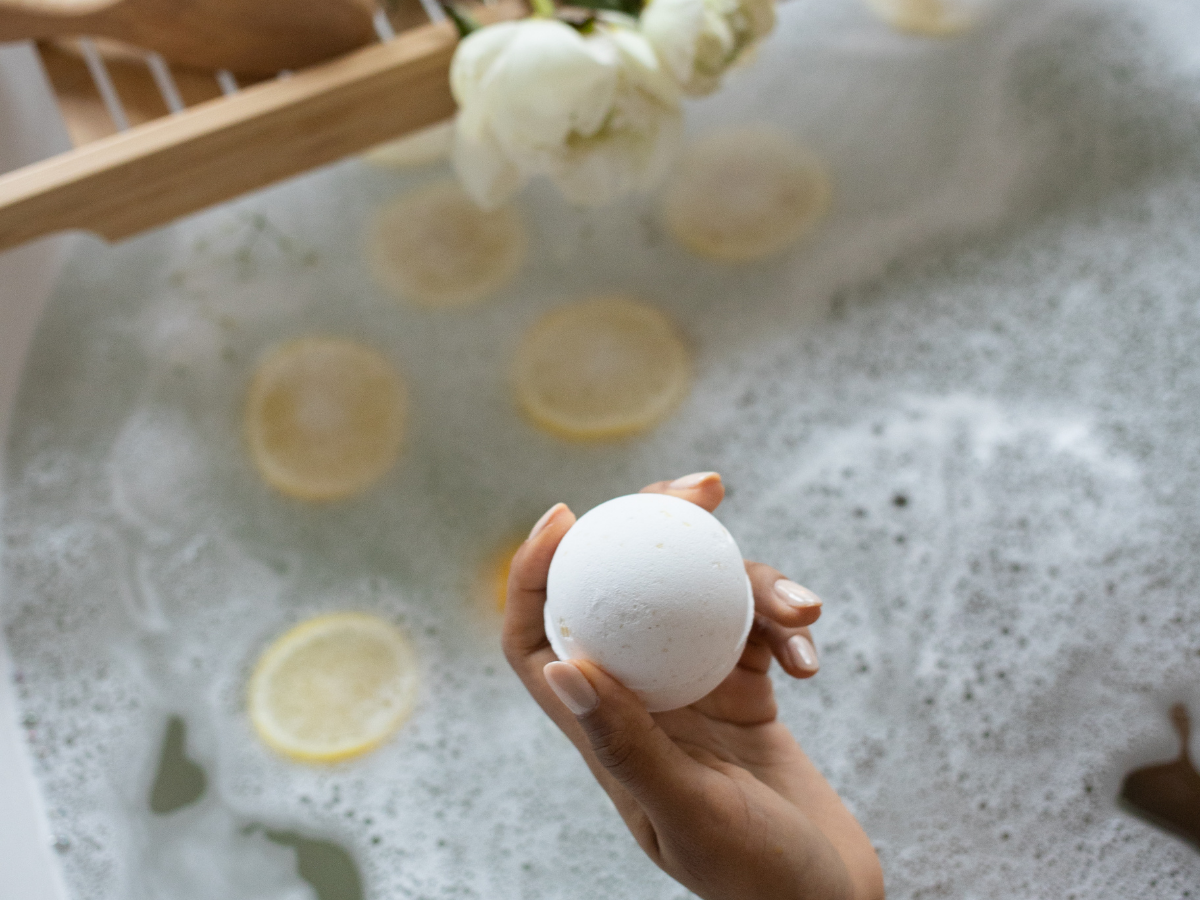Can Bath Bombs Cause Serious Damage to Your Plumbing?
A good way of relieving yourself of stress is to take a long relaxing bath. If you want bath time to be fun also, you can consider using a bath bomb.
Bath bombs can transform an ordinary bath into a relaxing spa experience with their sparkling colors and fizz. A day filled with stress and pressure can easily become non-existent by surrounding yourself with bath bombs. Light up a candle or two and play soothing music to complement the bombs and in no time, you’ll feel totally rejuvenated.
What Is a Bath Bomb?
Bath bombs are round ball-like structures about the size of a palm that fizzle and dissolve after you throw them into a bath tub that has been filled with water. Formerly known as ‘Aqua Sizzlers’, the bath bomb was a 1989 invention of Mo Constantine who co-founded a cosmetics brand
Bath bombs are made from a mixture of a bicarbonate base and an acid and complemented by essential oils, colorants, and fragrances.They are often used to add a bit of excitement to an otherwise quiet but routine bathing activity. They are also infused with soothing oils that reduce stress caused by the hustle and bustle of city living. When dissolved in water, bath bombs are known to release a sweet, fragrant scent that can prove to be relaxing.
Bath Bombs and Your Home Drain
There have been several issues about the use of bath bombs and their effects on the drainage system in the home. Many say that the product causes drain clogging. To find out more about this, you have to examine the ingredients that comprise a typical bath bomb.
Why Do Bath Bombs Clog Drains?
Look back at how you might have done the volcano science project in high school so you can have a better idea as to how bath bombs work. In that science project, you discovered that when baking soda and vinegar are mixed together, the solution produces a fizzing and bubbling reaction.
Bath bombs produce a similar result, although the reaction is more subtle. This is because baking soda and citric acids are the chemicals that were mixed and caused the fizzing effect. These two are the main ingredients of bath bombs, although the product also contains additives like corn starch, cocoa butter, aroma flowers, essential oils, and many others. While cocoa butter is a good moisturizer and essential oils can produce that distinct aromatic scent, they are additives that contain chemicals which can turn out to be damaging to your pipes. If these end up leaking, you’ll have to call an experienced plumber who will come in and do the needed repair work.
A Better Plumber said additives don’t easily dissolve in water, unlike baking soda and Epsom salt. Examples of these are corn starch and oils that can solidify when they dry up and can harden water pipes. Glitter and petals, meanwhile, go straight to the drain. These substances, along with hair, soap scum, and dead skin can end up blocking your drainage system.
How To Use Bath Bombs Correctly
Bath bombs help to calm and relax your mind and body and can still be enjoyed without putting a strain on your plumbing system. Just keep in mind the following reminders:
- Use Drain Barriers
These can filter out any ingredients that end up in the sink. For generally larger items, however, it’s best to use a strainer.
- Use Nylon Socks
Place your bath bombs inside a nylon sock and tie it up tightly to prevent insoluble substances from escaping.This will ensure that most of the clog-causing substances of the bath bombs are contained while still allowing the good stuff to dissolve in the water.
- Use a Mesh Net
If you love to bathe in a tub, protect the drain part by using a mesh net. This should effectively capture any other debris that falls in your tub.
- Hot Water
To help dissolve any residue that your bath bombs may have left behind, flush the tub with hot water after you finish bathing. Before flushing, mix 1 cup vinegar and 1 cup baking soda together and let this sit for about 5 minutes.
Key Takeaway
Bath bombs are fun and exciting companions in the tub, but you should learn to use them sparingly. Many of its chemical ingredients may appear harmless, but they can actually cause clogging, especially when they come into contact with other substances that have found their way to your drainage system.
If a blockage eventually occurs, you will need to get the services of a reputable plumber who can come over to your place and do a quick repair. A DIY on your clogged drain might be a tempting prospect, but you should leave the job to professional plumbers to ensure that the problem is resolved to your satisfaction.

